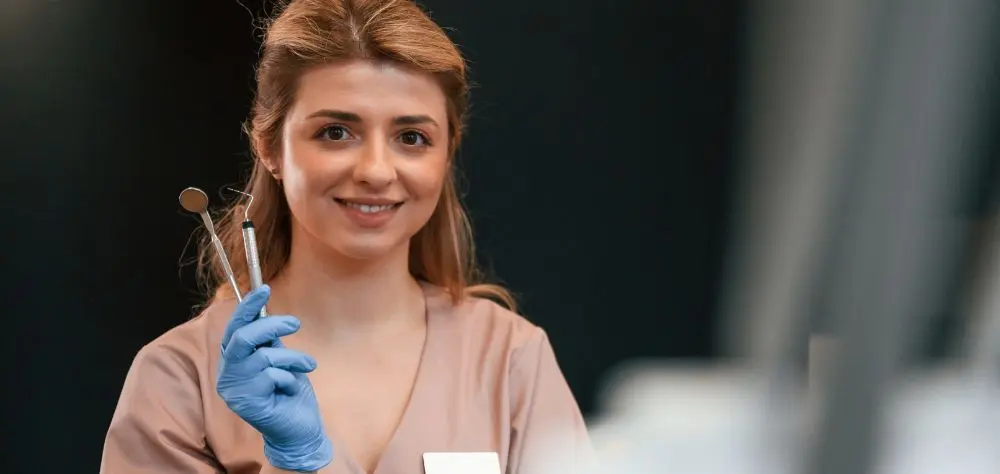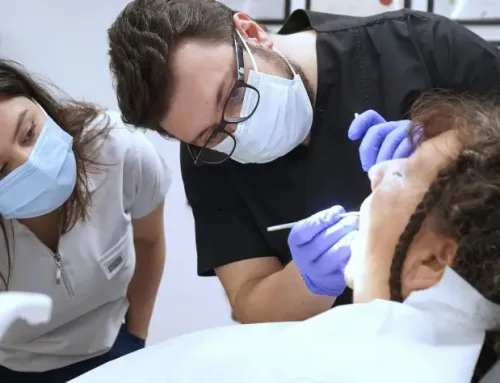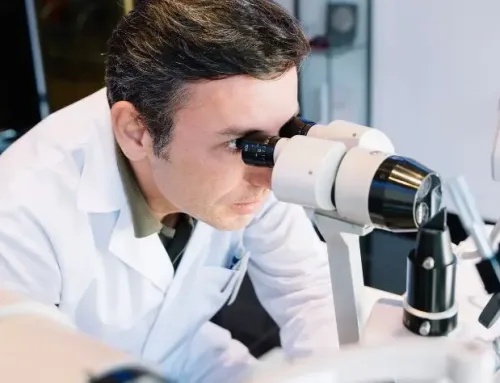How to Get Into Dental School With a Low GPA: Strategies That Work

How to get into dental school with a low GPA? It’s a challenge many aspiring dentists face, but it’s not impossible. While GPA is a key factor in admissions, it’s just one part of your application. Admissions committees value dedication, resilience, and well-rounded candidates who demonstrate a clear commitment to dentistry.
Taking strategic steps, like excelling in prerequisite courses, gaining hands-on experience, and showcasing strong interpersonal skills, can make a significant difference. Programs like SCU’s Master of Science in Medical Science (MSMS) offer an excellent opportunity to strengthen your academic credentials and prove your readiness for the rigorous demands of dental school. With focus and determination, you can overcome a low GPA and achieve your dream.
Why Your GPA Matters in Dental School Admissions—and How to Stand Out
GPA is one of the most critical metrics dental school admissions committees use to assess academic ability and readiness for a rigorous curriculum.
- Reflection of Academic Strength: A high GPA demonstrates your capacity to handle challenging coursework, a key indicator of success in dental school.
- Typical Requirements: Competitive programs often require a minimum GPA of 3.0, with averages for accepted students ranging from 3.4 to 3.8.
- Consistency Counts: A consistent academic record over time reflects discipline and commitment, qualities essential for future dentists.
While GPA holds significant weight, it’s important to understand it’s only part of the bigger picture.
Other Factors Admissions Committees Consider
Beyond GPA, admissions committees take a holistic view of your application, focusing on several other factors that highlight your potential.
DAT Scores: Strong results on the Dental Admission Test show your ability to handle dental school’s academic and professional demands.
Clinical Experience: Shadowing dentists, volunteering in dental clinics, or gaining hands-on experience demonstrates your dedication to the field.
Personal Statement: A compelling essay allows you to share your passion for dentistry, personal journey, and career goals.
Extracurricular Activities: Leadership roles, community involvement, and unique experiences showcase your well-roundedness and ability to connect with others.
Balancing these elements alongside your GPA can strengthen your application and help you stand out.
How a Low GPA Impacts Applications
A low GPA can pose challenges, as it places you in competition with applicants who meet or exceed typical benchmarks. However, it’s not an insurmountable hurdle.
- Mitigation Strategies: Excelling on the DAT, gaining significant clinical experience, or enrolling in a post-baccalaureate or master’s program can demonstrate your academic growth and readiness.
- Context Matters: Admissions committees often consider trends in your academic record. A strong upward trajectory can indicate resilience and the ability to overcome challenges.
- Holistic Review: Schools that take a comprehensive approach to admissions may weigh your experiences, personal qualities, and potential as much as your GPA.
By addressing weaknesses and highlighting strengths, you can create a compelling application that catches the attention of admissions committees.
Overcoming a Low GPA: Strategies for Success
Facing dental school applications with a low GPA can be daunting, but it’s not a dead end. Admissions committees look beyond grades for candidates who show resilience, determination, and a clear commitment to dentistry. By leveraging other strengths in your application, you can offset a low GPA and stand out as a strong candidate. From excelling in standardized tests to gaining hands-on experience, these strategies can help you demonstrate your readiness and passion for dental school.
Excel in the DAT
A strong score on the Dental Admission Test (DAT) can help balance a low GPA by showcasing your academic competence.
Why It Matters: High DAT scores demonstrate your ability to handle the challenging curriculum of dental school. They also show improvement and potential, which admissions committees value.
Preparation Tips: Create a structured study schedule, use reliable prep materials like DAT Bootcamp or Kaplan, and consider taking practice tests to identify areas for improvement. Leverage free resources such as ADA’s DAT Guide, or invest in prep courses for expert guidance.
By prioritizing the DAT, you can demonstrate your academic abilities and commitment to success.
Complete Post-Baccalaureate or Master’s Programs
Enrolling in advanced academic programs can demonstrate growth and a renewed focus on academic excellence.
- SCU’s MSMS Program: Our Master of Science in Medical Science (MSMS) program offers rigorous coursework in advanced sciences, helping students strengthen their credentials.
- Prove Academic Readiness: Success in a post-baccalaureate or master’s program can show admissions committees that you’re prepared for the demands of dental school, outweighing past GPA challenges.
- Stand Out: Completing advanced courses with excellent grades highlights your ability to succeed in a professional academic environment.
Advanced programs like ours can help you transform your academic profile and make a lasting impression on admissions committees.
Gain Hands-On Experience
Practical experience in dentistry can showcase your dedication and understanding of the field. You can volunteer in dental clinics or underserved communities to gain insight into patient care. Consider also shadowing experienced dentists to learn about the day-to-day responsibilities of the profession.
These experiences not only strengthen your application but also give you meaningful stories to share in your personal statement and interviews.
Craft a Compelling Personal Statement
Your personal statement is an opportunity to address a low GPA and highlight your strengths.
Address, Don’t Excuse: Briefly acknowledge your GPA but focus on how you’ve grown and what you’ve done to overcome challenges.
Showcase Resilience: Share stories of personal growth, persistence, and dedication to dentistry.
Connect Passion to Actions: Highlight specific experiences, like volunteering or academic improvement, that reflect your commitment to the field.
A well-crafted personal statement can transform your perceived weaknesses into compelling strengths.
Secure Strong Letters of Recommendation
Letters of recommendation are powerful tools for offsetting a low GPA.
Choose Thoughtfully: Ask professors, mentors, or supervisors who know you well and can speak to your growth, character, and potential.
Highlight Strengths: Letters that discuss your perseverance, academic improvement, and hands-on experience carry significant weight.
Build Relationships: Invest time in connecting with your recommenders to ensure their letters are personalized and impactful.
Strong recommendations can add depth to your application and reinforce your readiness for dental school.
By following these strategies, you can overcome the challenges of a low GPA and create a standout dental school application. With focus and determination, your dream of becoming a dentist is within reach.
Boosting Your Chances: How SCU’s MSMS Program Makes a Difference
How to get into dental school with a low GPA? It might seem like an uphill battle, but it’s entirely achievable with the right strategy. At SCU, our Master of Science in Medical Science (MSMS) provides a pathway to strengthen your academic foundation, demonstrate growth, and showcase your readiness for dental school. We are committed to helping students transform their academic challenges into future successes.
Academic Excellence and Preparation
Our Master of Science in Medical Science program delivers rigorous coursework designed to enhance your foundational knowledge in key areas such as anatomy, physiology, and molecular biology.
These courses mirror the demands of dental school, ensuring you’re prepared for the challenges ahead.
Demonstrate Improvement
Excelling in the Master of Science in Medical Science program is a powerful way to demonstrate your potential and academic growth.
- Showcase Resilience: Admissions committees value applicants who show determination and the ability to overcome obstacles.
- Evidence of Capability: Success in our program serves as proof that you’re ready to thrive in the challenging curriculum of dental school.
We provide you with the tools and support to turn past challenges into a compelling story of progress.
Flexible Learning Options
We understand that life doesn’t stop while you pursue your goals, which is why our Master of Science in Medical Science program is designed with flexibility in mind.
- Online and Hybrid Remote Formats: Choose the learning style that fits your schedule and commitments.
- Balance Your Priorities: Whether you’re working, caring for family, or managing other responsibilities, our program allows you to advance your education without compromising other areas of your life.
This flexibility ensures that your academic aspirations can fit seamlessly into your current lifestyle.
Personalized Support and Mentorship
At SCU, we pride ourselves on the personalized attention and mentorship we provide to every student.
- Expert Faculty: Our instructors are dedicated to helping you excel academically and professionally.
- Small Class Sizes: Enjoy individualized guidance and a close-knit learning environment that supports your success.
- Tailored Assistance: From study strategies to pathway advice, we’re here to help you every step of the way.
Admission Requirements
To join our Master of Science in Medical Science program, you’ll need a bachelor’s degree from an accredited institution. While many applicants hold degrees in sciences like biology, chemistry, or biochemistry, we also welcome candidates from other academic backgrounds. A minimum undergraduate GPA of 2.7 is typically required, but we evaluate exceptions on a case-by-case basis, ensuring every motivated student has the opportunity to succeed.
If you don’t yet have a bachelor’s degree, we’re here to help. At SCU, we offer pathways to complete your undergraduate education, giving you the foundation needed to pursue advanced studies in our Master of Science in Medical Science program. Whatever your starting point, we’re committed to supporting your journey to success.
SCU: Helping You Succeed, One Step at a Time
How can you get into dental school with a low GPA? The key is demonstrating growth, resilience, and readiness through strategic actions. From excelling in our Master of Science in Medical Science program to gaining hands-on experience and crafting a standout application, you can overcome this challenge and prove your capability to thrive in dental school.
At SCU, we’re here to support you every step of the way with personalized mentorship, flexible learning options, and rigorous academics. Don’t let a low GPA hold you back from your dreams. Explore our admissions requirements and apply today.
FAQs
How to get into dental school with a low GPA?
Focus on showcasing your strengths. Excel in the DAT, gain hands-on dental experience, and consider post-baccalaureate or master’s programs to strengthen your academic credentials. Highlight growth, resilience, and dedication in your application materials to make a compelling case.
What GPA do I need to apply to dental school?
Most dental schools require a minimum GPA of 2.5 to 3.0, but competitive programs typically look for a 3.5 or higher. A lower GPA can be offset with strong DAT scores, experience, and a well-rounded application.
Should I reapply if I don’t get accepted the first time?
Yes! Use the extra time to strengthen your application—improve grades, gain more experience, and refine your personal statement. Many successful dental school students weren’t accepted on their first try, but persistence and preparation paid off.
Can a program like the Master of Science in Medical Science (MSMS) help me get into dental school with a low GPA?
Yes! Completing a rigorous program like the MSMS demonstrates academic growth and readiness for dental school. Excelling in advanced coursework highlights your ability to succeed in challenging environments and strengthens your overall application.
Related Posts




